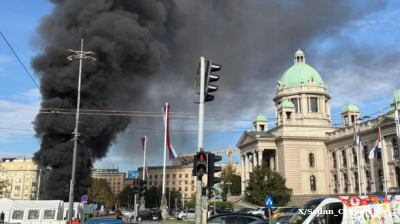An opinion poll conducted by the Shargh Network revealed that over 84% of Iranians do not believe the new hijab bill, currently under review in the parliament, will increase compliance with Islamic clothing requirements if it eventually becomes law.
Iranian civil society has been torn over the mandatory hijab since its introduction at the beginning of the Islamic Revolution, which forced women to wear a head covering. The case of Mahsa Amini, a 22-year-old Kurdish girl who visited Tehran and died at the hands of the police’s so-called Guidance Patrol in charge of forcing women to wear a head covering, sparked months of turmoil leading to the largest civil disobedience to date and collapse of the hijab rule in large parts of society in the country. Liberal-leaning Iranians have, since Amini’s death, increasingly defied the Islamic Republic’s rules in cities such as Tehran and Shiraz. This direct challenge since the protests prompted MPs in the country to hurry another hijab law through parliament.
On September 20, MPs voted in favour of a three-year trial execution of the so-called "Hijab and Chastity" bill, which imposes stringent regulations concerning the observance of the Islamic dress code by women. The law was subsequently reviewed by the Guardian Council, a legislative oversight body, which identified flaws and returned it to the parliament for corrections.
After its initial passage by the legislature, Zohreh Lajevardi, a parliament member, expressed optimism, saying: “With the law that we passed, society will noticeably change in terms of hijab compliance within the next three years.”
Shargh Network, affiliated with the pro-reformist Shargh newspaper, conducted an opinion poll on September 21, asking the public whether they believed the bill would eventually convince women to adhere to hijab standards once it became law. The poll remained open for a month, until October 22, with 12,334 participants. The results showed that 84.21% responded with "no", while only 15.79% answered "yes".
Due to the outcome, Shargh was forced to remove the findings of the survey hours after publication on its website.
The controversial hijab bill employs terms such as "nudity, lack of chastity, lack of hijab, bad dressing, and acts against public decency leading to disturbance of peace" as examples of punishable offences. The provisions grant public institutions the authority to deny essential services and opportunities to individuals who fail to comply with the compulsory veiling requirements. Directors and managers of organisations who fail to implement the law could also face punishment. Sanctions range from financial penalties of up to $6,000, business bans, denial of services, confiscation of passports, and prison sentences of up to 10 years.
This bill was passed at a time when the clerical government was grappling with one of its most significant crises over the imposition of Islamic rules since its establishment in 1979. Many Iranian women have refused to wear the headscarf in public following the death of Amini while in the custody of the so-called morality police.
In early September, United Nations experts expressed grave concern over the draft law, describing it as a form of "gender apartheid". They urged Iranian authorities to reconsider the compulsory hijab legislation in line with international human rights standards.
The Islamic Revolutionary Court issued a preliminary ruling against Elaheh Mohammadi and Niloufar Hamedi, two female journalists who had reported on the death of Mahsa Amini while in police custody. This ruling, as reported by the Iranian Judiciary's news agency Mizan on October 22, convicts the duo on three charges.
Mohammadi and Hamedi have been in detention for over a year now. Their reporting contributed to months of nationwide protests last year, which were met with a harsh government crackdown.
The court's decision came after about 200 journalists and authors issued an open letter last week, demanding the release of the two reporters and arguing that their prolonged temporary detention without a court order was not in compliance with the law.
News
_1761147529.jpeg)
China accuses Washington of “bullying” over visa ban threats in Central America
China has sharply criticised the United States for its decision to impose visa restrictions on Central American officials and citizens accused of ties to the Chinese Communist Party, describing the move as evidence of American “arrogance and bias."

Serbian president calls fire, shooting outside parliament a terrorist attack
The attacker, a retired employee of the former State Security Service, opened fire on a tent settlement of pro-government supporters.

Bolivia's new leader must rebuild a shattered economy
Bolivia enters a new political and economic phase as centrist Rodrigo Paz prepares to take office on November 8, inheriting one of the country’s most acute crises since the hyperinflation of the 1980s.

Hungarian foreign minister says "many actors" worked to prevent Budapest summit
The White House has suspended plans for a meeting between US President Donald Trump and Russian President Vladimir Putin in Budapest.




